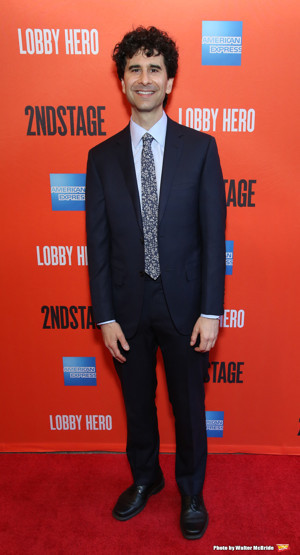Performers Advocate for Theatre in Our Schools Month

Employers across the globe agree that it is essential in today's workplace to be able to collaborate, communicate, and think critically, as detailed in the Future of the Workforce Study conducted by the World Economic Forum. These are the 21st century skills that participation in theatre in school is known to develop, as other independent studies confirm.
That's why during March, as part of Theatre in Our Schools (TIOS) month, thousands of students and theatre educators are taking that message to their communities, school boards, and elected officials, as well as spreading the word online, of how their school theatre experience is giving them 21st century skills.
This grassroots effort to draw attention to the benefits of having theatre in the schools, as well as the need for more access to quality programs for all students is jointly led by the American Alliance for Theatre & Education (AATE), the Educational Theatre Association (EdTA), and the International Thespian Society (ITS). Disney Theatrical Productions sponsors Theatre in Our Schools Month.
The TIOS campaign, which highlights 31 facts in 31 days on social media #TIOS19, will also feature video testimonials from a diverse group of performers including: actor and playwright John Cariani (The Band's Visit; Almost, Maine); Megan Hilty (Wicked, Smash); Darren Criss (Glee, Hedwig and the Angry Inch); L. Steven Taylor and Bradley Gibson, who play Mufasa and Simba, respectively, in The Lion King; Arielle Jacobs, who plays Jasmine in Aladdin; and Noah J. Ricketts, who plays Kristoff in Frozen.
In his testimonial John Cariani urges providing arts for the half of every student body who is not participating in sports, saying, "Theatre, arts, makes kids learn things in a different way than taking a test does. Kids who may struggle with comprehension or concepts may develop a passion about that concept when they are the ones who get to tell others about it in the form of a play. And it's interesting to watch that passion make kids learn."
EdTA's Executive Director, Julie Cohen Theobald, says, "While I did theatre as a child, I went into the corporate world and I found that the skills that I take as a leader have come from theatre. It didn't just build my confidence, it helped with discipline, accountability, communication, and collaboration, and it builds empathy by having you walk in someone else's shoes."
L. Steven Taylor, who includes teaching preschool on his resume, concurs saying, "I think it's important that students have access to arts education because theatre especially stimulates in a way that other subjects can't, it teaches kids to be empathetic by introducing them to other cultures and experiences through storytelling. It translates to all different areas of their lives."
In fact, according to a 2016 poll "Americans Speak Out about the Arts: An In-Depth Look at Perceptions and Attitudes about the Arts in America," conducted by Americans for the Arts, nine in 10 American adults agree that the arts are part of a well-rounded K-12 education. The annual national Arts Action Summit organized by Americans for the Arts, is taking place in Washington, D. C. on March 4-5.
AATE's Managing Director, Alexis Truitt, adds that while instruction time in the arts is decreasing, schools are finding new ways of creating learning opportunities. By spotlighting theater education in the month of March, the organizations hope to showcase the important work happening on school stages across the country.
For more information about TIOS visit schooltheatre.org/programs/tios and follow
#TIOS19 and #TheatreinOurSchools on social media
Photo Credit: Walter McBride / WM Photos
Comments
Videos


